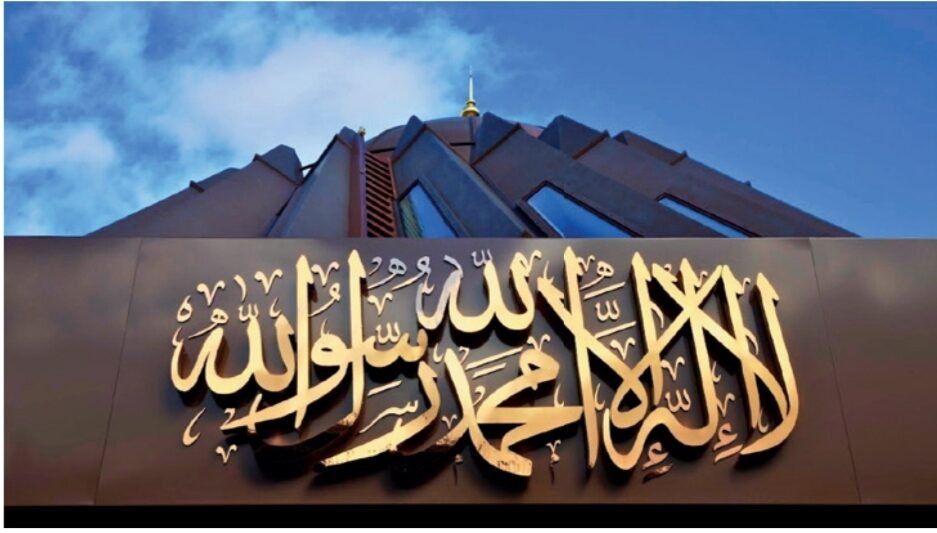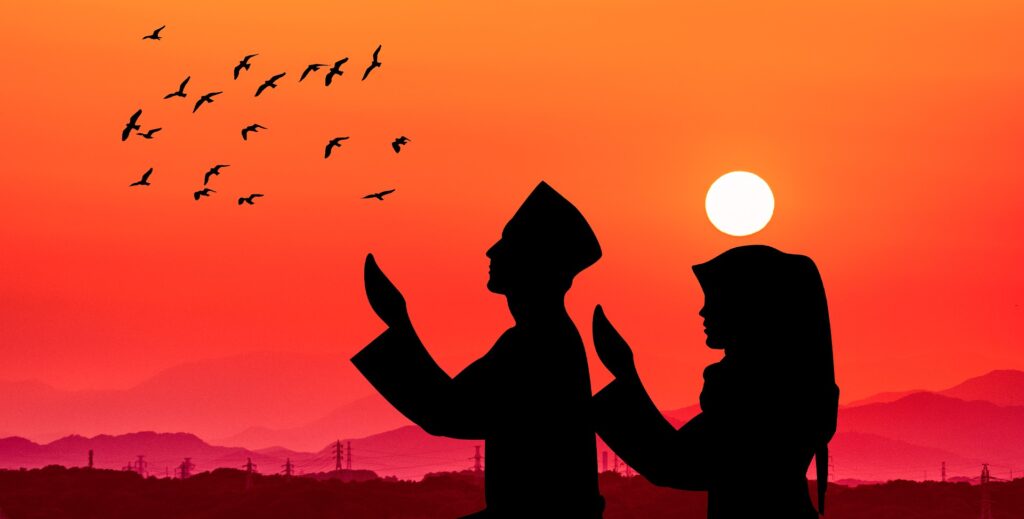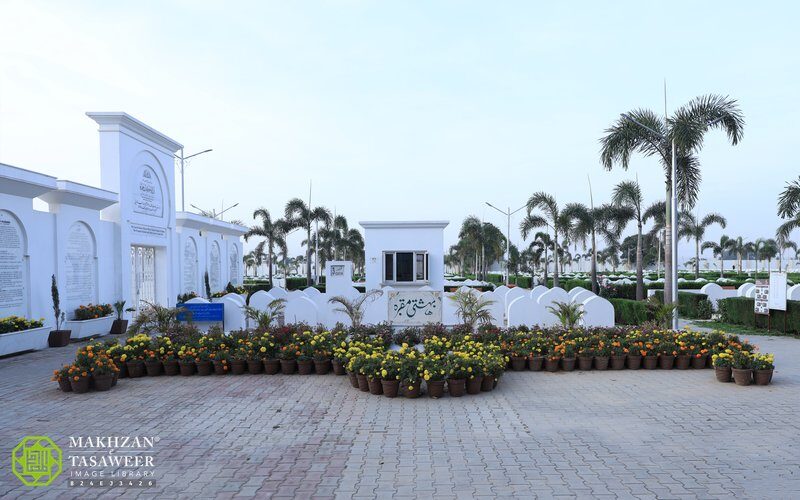Guidance regarding basic Islamic issues that Hazrat Amirul Momineen, Khalifatul Masih Vaa, has given on various occasions in his written correspondence and during MTA programmes is being published officially below for everyone’s benefit.

Six kalimas
A lady wrote to Hazrat Amirul Momineen, Khalifatul Masih Vaa, asking about the number of kalimat, the Ahmadiyya Muslim Jamaat believes in according to the Islamic sharia and acknowledges them as being substantiated by either the Holy Quran or the Hadith. Huzoor-e-Anwaraa, in his letter dated 21 March 2022, provided the following response to her query:
“The Islamic creed is only one and it is expressed through what is known as “al-kalimah at-tayyibah” or “kalimah ash-shahadah”. In al-kalimah at-tayyibah, the concept of Allah’s Tawhid [Oneness] and the messengership of the Holy Prophetsa are testified to in simple terms. On the other hand, the kalimah ash-shahadah involves testifying to Allah’s Tawhid and the messengership of the Holy Prophetsa through a declaration of faith, which is known as shahadah or witnessing.
“This kalimah, i.e. testifying to the Tawhid of Allah and the messengership of the Holy Prophetsa, also forms the foremost and fundamental pillar of Islam. In a hadith, the Holy Prophetsa stated:
بُنِيَ الْإِسْلَامُ عَلَى خَمْسٍ شَهَادَةِ أَنْ لَا إِلٰهَ إِلَّا اللّٰهُ وَأَنَّ مُحَمَّدًا رَسُولُ اللّٰهِ وَإِقَامِ الصَّلَاةِ وَإِيتَاءِ الزَّكَاةِ وَالْحَجِّ وَصَوْمِ رَمَضَانَ
“‘Islam is based on [the following] five [pillars]:
“‘Giving testimony that there is none worthy of worship except Allah and that Muhammad[sa] is His Messenger;
“‘Observing salat;
“‘Paying the Zakat;
“‘Performing the Hajj, and,
“‘Fasting in the month of Ramadan.’ (Sahih al-Bukhari, Kitab al-iman)
“This kalimah was the one that the Holy Prophetsa instructed every new convert to Islam to profess. As an example, when Hazrat Mu‘azra bin Jabal was sent to Yemen by the Holy Prophetsa, he imparted this advice to him:
إِنَّكَ سَتَأْتِي قَوْمًا أَهْلَ كِتَابٍ فَإِذَا جِئْتَهُمْ فَادْعُهُمْ إِلَى أَنْ يَشْهَدُوا أَنْ لَا إِلَهَ إِلَّا اللّٰهُ وَأَنَّ مُحَمَّدًا رَسُولُ اللّٰهِ
“‘You are going to a people, from among the People of the Book. When you reach them, invite them to testify that there is none worthy of worship except Allah and that Muhammad[sa] is His Messenger.’ (Sahih al-Bukhari, Kitab az-zakat)
“Following the footsteps of his master and guide-Sayyiduna Muhammadsa al-Mustafa-the Promised Messiah and Mahdi, who was his most ardent devotee, would also require initiates to recite the same kalimah ash-shahadah before accepting their pledge of allegiance. Hence, while recounting the story of his bai‘at, Hazrat Maulana Ghulam Rasool Rajekira wrote, ‘While accepting my bai‘at, the Promised Messiahas asked me to recite the kalimah ash-shahadah.’ (Hayat-e-Qudsi, p. 494) In adherence to this sunnah of the Holy Prophetsa and the Promised Messiahas, the Khulafa-e-Ahmadiyyat also require the recitation of the same kalimah ash-shahadah during the bai‘at ceremony.
“Thus, every member of the Ahmadiyya Muslim Jamaat wholeheartedly believes in this kalimah by the grace of Allah the Exalted. We hold it to be the foremost among the [five] fundamental pillars of Islam.
“As far as the concept of the six kalimas with their distinct names and arrangement, that are commonly found among [South Asian] Muslims, is concerned, it is not substantiated anywhere by the Holy Quran or the ahadith of the Holy Prophetsa. Rather, these kalimas were formulated much later after the blessed era of the rightly-guided caliphate by combining various kinds of zikr and supplications mentioned in the ahadith and by giving them distinct names. Therefore, this particular arrangement of these kalimas, as well as the significance and obligation attached to them (which is prevalent among the Muslims populace), does not hold any status according to the sharia.” [For more on this topic, see Friday Sermon, 14 April 2023; Al Hakam, Issue 269, 12 May 2023, pp. 17-20]
Blessings of Hereafter

A lady from the UK wrote to Hazrat Amirul Momineen, Khalifatul Masih Vaa, stating that the Holy Quran promises that the dwellers of Paradise will be given chaste maidens of modest gaze, which in simple terms means women. She said that, if these were women, then only men would get this reward. She asked, what the reward would be for the believing women in heaven. She also asked whether women were created only for men. Huzoor-e-Anwaraa, in his letter dated 9 April 2022, provided the following answer to her question:
“The descriptions of the blessings of Paradise are all conveyed in the Holy Quran and the Prophetic traditions [ahadith] through figurative language, which draws comparisons to worldly objects only in order to facilitate our comprehension. Allah the Exalted states:
مَثَلُ الۡجَنَّةِ الَّتِيۡ وُعِدَ الۡمُتَّقُوۡنَ
“‘The similitude of the Heaven promised to the God-fearing is […].’ (Surah ar-Ra‘d, Ch. 13: V. 36)
“Allah the Exalted further states:
فَلَا تَعۡلَمُ نَفۡسٌ مَّاۤ اُخۡفِيَ لَہُمۡ مِّنۡ قُرَّةِ اَعۡيُنٍ ۚ جَزَآءًۢ بِمَا کَانُوۡا يَعۡمَلُوۡنَ
“‘And no soul knows what joy of the eyes is kept hidden for them, as a reward for their good works.’ (Surah as-Sajdah, Ch. 32: V. 18)
“Likewise, the Holy Prophetsa stated:
يَقُولُ اللّٰهُ تَعَالٰى أَعْدَدْتُ لِعِبَادِي الصَّالِحِينَ مَا لَا عَيْنٌ رَأَتْ وَلَا أُذُنٌ سَمِعَتْ وَلَا خَطَرَ عَلَى قَلْبِ بَشَرٍ ذُخْرًامِنْ بَلْهِ مَا أُطْلِعْتُمْ عَلَيْهِ
“‘Allah the Exalted states, ‘I have prepared for My righteous servants, such things as no eye has ever seen, no ear has ever heard of, and nobody has ever thought of. All that is reserved, besides which, all that you have seen, is nothing.’’ (Sahih al-Bukhari, Kitab at-tafsir)
“The Promised Messiahas stated the following in this regard:
“‘God has described the good things of Paradise in the guise of things that were cherished by the Arabs so that their hearts would be drawn towards it. In reality, those things are of a different nature and not things of this world. But it was compulsory to describe them in this way so that the hearts may be drawn towards them.’ (Barahin-e-Ahmadiyya V, Ruhani Khazain, Vol. 21, p. 424)
“Explaining the above-mentioned verse of Surah as-Sajdah [32:18], the Promised Messiahas stated:
“‘That is, no virtuous one knows what bliss is kept hidden from him, as a reward for that which he used to do. Thus, God has described all those bounties as hidden, the like of which is not to be found in this world. It is obvious that the bounties of this world are not hidden from us and we are familiar with milk, pomegranates and grapes etc. which we eat here. This shows that the bounties of the next life are something else and have nothing in common with the bounties of this life, except the name. He who conceives of the conditions of paradise in the terms of the conditions of this life has not the least understanding of the Holy Quran.’ (Islami Usul Ki Falasfi, Ruhani Khazain, Vol. 10, pp. 397-398)
“Explaining the wisdom behind keeping these blessings hidden, the Promised Messiahas stated:
“‘Concealment, as an act of Allah, carries an inherent greatness. God’s act of concealing is like what is articulated in the following about Paradise:
فَلَا تَعۡلَمُ نَفۡسٌ مَّاۤ اُخۡفِيَ لَہُمۡ مِّنۡ قُرَّةِ اَعۡيُنٍ
“‘(‘And no soul knows what joy of the eyes is kept hidden for them.’)
“‘In fact, there is an honour in the act of concealing itself, akin to the presentation of food under a covering cloth. That too is a sign of respect.’ (Al-Badr, Issue 11, Vol. 1, 9 January 1903, p. 86)
“The concept of the hur in Paradise is a figurative one and is mentioned in the Holy Quran on four occasions. The first two references (in Surah ad-Dukhan and Surah at-Tur) promise that وَزَوَّجۡنٰہُمۡ بِحُوۡرٍ عِيۡنٍ, i.e., the dwellers of Paradise will be consorted with fair maidens with wide, black eyes. The remaining two references (in Surah ar-Rahman and Surah al-Waqi‘ah) describe the exquisite attributes of the hur – they will be in well-guarded pavilions like pearls and corals, i.e., they will be adorned with qualities of modesty and shyness, as well as goodness, purity, beauty, and excellence of character.
“The word ‘zawj’ means a mate or spouse. It is not correct to interpret this as referring only to a man or a husband, rather it means a righteous and pure companion or mate. In view of this, the meaning of these verses would be that ‘We will make pious women the companions of pure men and pious men the companions of pure women in Paradise.’
“Hazrat Musleh-e-Maudra interprets the verse وَ لَہُمۡ فِيۡہَاۤ اَزۡوَاجٌ مُّطَہَّرَةٌ of Surah al-Baqarah, [i.e., ‘And they will have therein mates perfectly pure.’ (2:26)], as follows:
“‘وَ لَہُمۡ فِيۡہَاۤ اَزۡوَاجٌ مُّطَہَّرَةٌ: There is no room for contention when considering the term ‘pure companions’. In this context, it would imply that just as sustenance in Paradise will be mutually beneficial, all its inhabitants will also assist each other in their spiritual growth. Consequently, there will be an all-encompassing sense of peace and cooperation, both internally and externally.
“‘If the term is interpreted to mean ‘husband’ or ‘wife’ – recognising that ‘zawj, pl. azwaj’ can refer to both genders, a woman’s ‘zawj’ being her husband and a man’s ‘zawj’ his wife – then one possible interpretation would be that every denizen of Heaven will be paired with a virtuous partner. There should be no objection to this interpretation either; rather, it serves as motivation for individuals to consider not only their own virtue but also that of their spouse; a man should consider not only his own virtue but also that of his wife, and a woman should consider not only her own piety but also that of her husband. This is premised on the idea that if couples desire to live together in the afterlife, as they do in this worldly life, each should strive to elevate the other’s righteousness. This would prevent a situation where the husband is in Heaven and the wife in Hell, or vice versa. From this standpoint, it is a sublime teaching of spiritual purity, and instead of objecting to it, one should appreciate its virtues.
“‘Furthermore, another interpretation could be that each person will be granted a pure mate in Heaven. There should be no contention with this interpretation either. If the interpretation implies that every man will be given a pure wife and every woman a pure husband, what possible objection could there be? An objection could only arise if there were an insinuation towards an impure act. Given that the Holy Quran uses the term ‘pure’ [mutahharah], it is clear that only actions deemed pure by the standards of Paradise will occur in Paradise. Hence, there is no basis for any objections.’ (Tafsir-e-Kabir, Vol. 1, pp. 252-253)
“Hazrat Khalifatul Masih IIIrh has also interpreted the following verse of Surah ad-Dukhan:
وَ زَوَّجۡنٰہُمۡ بِحُوۡرٍ عِيۡنٍ
“He explained the verse to mean, that the spouses of the believers will be transformed into hur and bound together in the bond of matrimony. In the subsequent verse, it has been stated that their children will also be gathered with them in Paradise. The reason why wives are not mentioned in the second verse is that they have already been referred to in the first verse, i.e. ‘وَ زَوَّجۡنٰہُمۡ بِحُوۡرٍ عِيۡنٍ’.
“The Holy Prophetsa told an elderly woman that no elderly woman would enter Paradise. She began to cry and asked, ‘O Messenger of Allah, where will I go then?’ He replied, ‘I did not say that you will not enter Paradise. Rather, no elderly woman will enter Paradise as an elderly person. You will enter Paradise as a young person.’ Thus, when an old woman will enter Paradise, she will be transformed into a young woman, and an ‘unattractive’ woman into an ‘attractive’ woman. Similarly, a woman who was disabled or disfigured in this world will have a healthy body and perfect features in Paradise. Hence, when it is said that ‘وَ زَوَّجۡنٰہُمۡ بِحُوۡرٍ عِيۡنٍ’, i.e., the companions of Paradise will be wed to ‘hur’, it does not mean elderly women, as they left them behind in the world. Rather, those women who enter Paradise will be hurin ‘inin, i.e., young, beautiful, and righteous, regardless of whether they were elderly or young in this world. In any case, the word ‘hur’ in this context refers to a spouse-like companion [zawj]. (Abridged from Friday Sermon, 19 February 1982; Khutbat-e-Nasir, Vol. 9, pp. 386-387)”
“Therefore, from the aforementioned references, it becomes evident that the term ‘hur’ refers to virtuous and pure mates who will be united in matrimonial bonds with believing men and women in paradise. These mates will be granted as a divine reward. What will be the nature of these mates? The perfect knowledge of this rests solely with Allah Almighty. Humans will gain this understanding only upon their arrival in paradise.
“This interpretation also provides an answer to your second question, ‘Are women only created for men?’ because, according to Islam, both men and women are created for each other. By comprehending this fact, a wise husband and wife can create a heaven for themselves in this life and also assist each other in their spiritual growth in the afterlife.”
Repeating janazah prayer

A lady from the USA wrote a letter to Hazrat Amirul Momineen, Khalifatul Masih Vaa, asking why the funeral prayer [janazah] is offered again when the body of a person who had been given interim burial is eventually moved to Bahishti Maqbarah, especially considering that many years may have passed since their death. Huzoor-e-Anwaraa, in his letter dated 21 April 2022, replied to this question as follows:
“Salat al-Janazah is a prayer offered for the forgiveness and spiritual elevation of the deceased. There are countless ranks in Paradise, so even after the funeral prayer, people continue to pray for the deceased. When they visit the graves of their loved ones, they also pray for their spiritual elevation. These practices are based on the sunnah of the Holy Prophetsa. “Hence, as conveyed in ahadith, there was a man who used to clean the mosque. One night, he passed away, and the people subsequently buried him. The following day, when this was brought to the attention of the Holy Prophetsa, he questioned, ‘Why wasn’t I informed?’ Then, he proceeded to visit the man’s grave, where he also offered his funeral prayer. (Sahih al-Bukhari, Kitab as-salat) Similarly, it is narrated by Hazrat ‘Uqba bin Amirra that one day the Holy Prophetsa supplicated for the martyrs of Uhud in the same way as one prays for the deceased. (Sahih al-Bukhari, Kitab al-jana’iz)
“It is not necessary to offer the janazah prayer again after the transfer of the dead body of a person who had been given an interim burial, but if it is offered, there is nothing wrong with it. When Hazrat Maulana Abdul Karim Sahib Sialkotira passed away, he was given an interim burial on 11 October 1905. However, it was the wish of the Promised Messiahas that his dead body should be moved to Bahishti Maqbarah. Therefore, when Hazrat Maulvi Sahib’s dead body was moved to Bahishti Maqbarah on 26 December 1905, the Promised Messiahas offered his funeral prayer again. (Al Hakam, No. 36, Vol. 9, 17 October 1905, p. 1; Al Hakam, No. 1, Vol. 10, 10 January 1906, p. 6)
“So, this is our practice, that sometimes we repeat Salat al-Janazah upon the transfer [and reburial] of the dead body, and sometimes we only offer a du‘a when a new grave is prepared. Both practices are correct.”
(Compiled by Zaheer Ahmad Khan, Head of Records Department, Private Secretariat, London. Translated by Al Hakam.)

